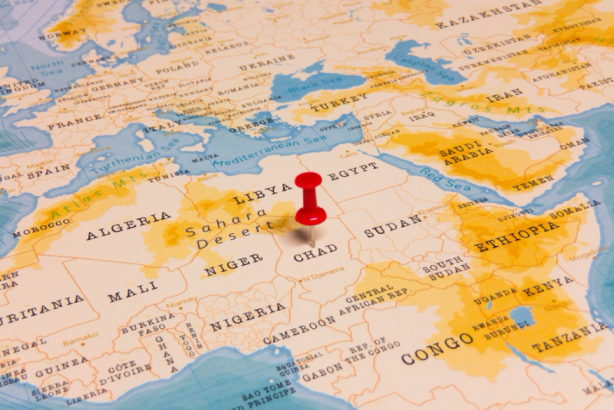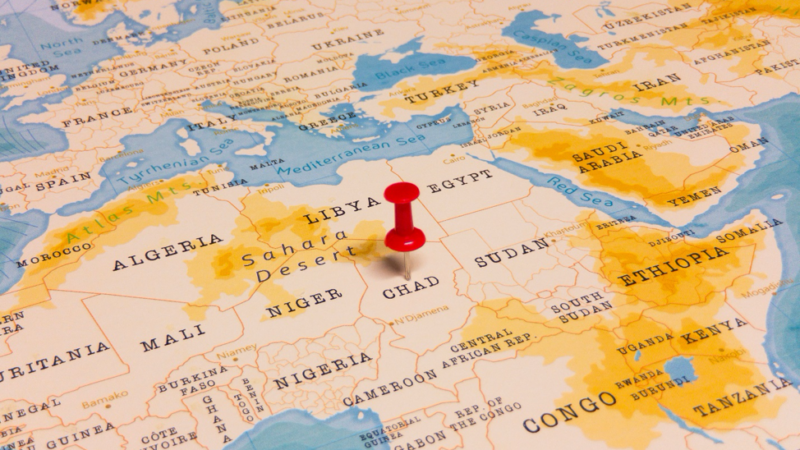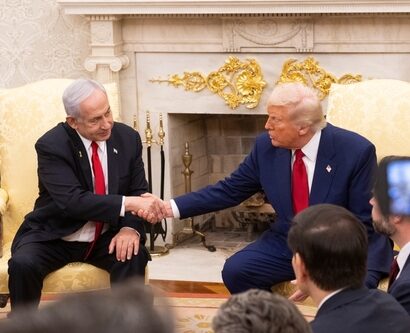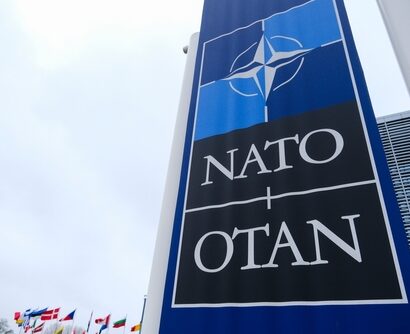Abstract: The country Idriss Deby now leaves behind can indeed be described as the last bulwark in the Sahel zone. For better or worse, modern Chad finds itself an anchor of stability, surrounded by the most vicious conflicts in contemporary Africa. Despite the chaos that has engulfed every single neighbouring country and under the leadership of former president Idriss Deby, Chad was able to supply both the UN and the French-led G5 Sahel with troops, turning the Chadian armed forces thereby into the gendarme of the Sahel. The death of Deby leaves France the benefit of probably her most loyal ally in Africa. It is unclear whether Idriss Deby’s son will be able to continue his father’s work. This paper will provide the reader with a historical analysis of the history of Chad since 1960 and of the 30-year long rule of Idriss Deby Itno. An examination of future Chadian defence and security policy is not intended.
Bottom-line-up-front: When and how exactly Idriss Deby Itno died remains unclear, as does the question of why France did not engage in the struggle as well. Having fought abroad like a lion, in the end, Idriss Deby Itno succumbed to his own domestic weaknesses. Like every Chadian ruler before him, he proved incapable of overcoming the fault lines that exist in Chadian society. The death of Deby leaves France devoid of probably her most loyal ally in Africa.
Problem statement: What does the history of Chadian foreign policy under Idress Deby Itno’s rule tell us about the current regional stability of the Sahel following Itno’s death?
So what?: Following the three-decade rule of Idriss Deby Itno, both Chad and the Sahel region need inclusive and stable political leadership. Should Chad now falter along ethnic lines, like neighbouring Sudan or Mali, it would have equally devastating effects, making the last bulwark in the Sahel crumble.

Source: shutterstock.com/hyotographics
Le marechal est mort, vive le marechal!
The long-term president of Chad, Idriss Deby Itno, who ruled Chad for more than three decades (1990-2021), died as he lived: like a warrior. Shortly after he had won his sixth consecutive term as president, he was killed on the battlefield in the north of the country, making him the last African head of state after the Ethiopian Emperor Yohannes IV in 1889 to have suffered this fate. For decades Marechal Idriss Deby was a stable partner of the West – especially France – in the Sahel zone. The marechal was one of Paris’ main pillars in Africa, and his loss will undoubtedly put a strain on the Franco-Chadian Alliance. Whether his son, who was elected chairman of the Transitional Military Council after his father’s death, will be able to uphold the good relationship with France and keep the country stable, is up for dispute. Since 2014 the capital city of Chad serves as the headquarter of the French-led military operation Barkhane.
For decades Marechal Idriss Deby was a stable partner of the West – especially France – in the Sahel zone. The marechal was one of Paris’ main pillars in Africa, and his loss will undoubtedly put a strain on the Franco-Chadian Alliance.
The country Idriss Deby leaves behind can be described as the last bulwark in the Sahel zone. For more than a decade now, virtually the entire region has been plagued by war and terrorism. Mali has been at war since 2012when a ragtag army made up of jihadists and Touareg separatists marched on Bamako and was only stopped by a massive French military intervention. Peace has not returned to Mali, which has seen coup d’états in August 2020 and in May 2021.
Neighbouring Niger has also not been untouched by the worsening security situation in the Sahel zone. Its porous borders with Mali and Burkina Faso have let terrorists move freely and strike at will for years now. The result is a series of atrocious massacres committed against the civilian population and the Armed Forces of Niger. A failed coup attempt in March 2021 was the sad climax of the deterioration of the security situation. Chad’s contentious neighbour to the east, Sudan, has not fared better: ever since the long-time dictator and long time antagonist, Omar al-Bashir, was overthrown in 2019, political instability has subsisted. What makes Chad unique in its geographic and political position is the fact that it functions as a deadbolt in the unruly Sahel Zone.
For better or worse, modern Chad finds itself an anchor of stability, surrounded by the most vicious conflicts in contemporary Africa. To the north, Chad borders Libya. Under Khaddafi, Libya posed a great threat and staged regular incursions into Chad. Since the fall of Khaddafi Libya descended into chaos, therefore destabilizing vast swathes of the Sahel zone. To the south, Chad is engaged in a constant struggle against the most tenacious terrorist fighting force on the continent: Boko Haram. After the president of the Central African Republic (CAR), Francois Bozize, was deposed from power in 2013, the CAR suffered the same fate as Libya. Civil war, ethnic unrest and religious antagonism plunged the CAR into chaos and made Chad’s southern border vulnerable to incursions from the CAR. Finally, to the East, the unresolved conflict in Darfur, the political instability of the new Sudanese government, and the ongoing civil war amongst the two dominant ethnic groups in the newly independent Republic of South Sudan create a permanent source of friction. Despite the chaos that has engulfed every single neighbouring country, under the leadership of former president Idriss Deby Chad was able to supply both the UN and the French-led G5 Sahel with troops, turning the Chadian armed forces thereby into the gendarme of the Sahel. The Chadian armed forces participated actively in the French operation “Serval” and have established themselves as the most formidable armed force in the area.
Even though Chad has been a troop contributor to the UN and G5 Sahel and has been fighting Boko Haram for years, this external show of force belies its domestic weakness. Like its neighbours in the region and in the broader Sahel, Chad has suffered the same domestic issues as the Sudan, Mali, or Niger. A majority-black African sedentary population is pitted against nomadic peoples. Just like in Mali[1], Chad has suffered from this conflict for decades. Outside show of force and domestic instability is what constitutes the Chadian Paradox. If Chad were to join Mali, Libya or Sudan and break down along ethnic lines or be ravaged by a Somali-style civil war, it would have disastrous consequences for North Africa and Europe.
Le Coeur Mort de l’Afrique
Often described as the dead heart of Africa[2] due to its landlocked geographical position, Chad is certainly one of the most ignored countries on this planet. This is true in the anglosphere, but most definitely in the centre of Europe. It is the general impression among many Europeans outside of France that Chad is barely worth any news and remains essentially a blank spot. Divided into a black African, animist/Christian south and a nomadic, Arabic, Islamised centre and north of the country, Chad serves as a prime example of how difficult it is for the Sahel countries to reconcile the antagonism of their different ethnic groups. When Chad became independent in 1960, its first president Francois Tombalbaye – a Sara from the south – side-lined the Muslim northerners with his policies. Especially Arab-speaking Chadians who studied abroad, notably in Egypt, were excluded from holding positions in the civil service.[3] The black southerners, who constitute more than half of the population of Chad, welcomed the French troops in the early 20th century as a protecting power against slave raids from the north. The southerners managed to work their way up in the public sector, and as mostly peasant farmers, they benefitted greatly from the French development of the cotton industry, at that time the country’s exclusive earner of foreign exchange.[4] Tombalbaye established a brutal dictatorship that eventually provoked an armed reaction by the Gorane and Zaghawa people, two nomadic peoples from the north and east of the country. In 1969, French forces had to come to the rescue of Tombalbaye.[5] On the one hand, the objective of this French operation was to support the regime of Francois Tombalbaye, and on the other hand, it was to maintain the unity of Chad.[6] Not having learnt from his earlier mistakes, Tombalbaye continued his campaign of marginalization and discrimination. The attitude against the Muslim northerners reached its tragic climax in 1973 when Tombalbaye launched – wandering in the footsteps of Mobutu – his “authenticité” campaign, purging everything apparent alien to Chadian culture. The capital city Fort Lamy was renamed N’Djamena, Tombalbaye even changed his first name from Francois to Ngarta, and Yondo – the initiation rite of the Sara people – became almost the national religion that all Chadians had to follow.[7] Tombalbaye’s disastrous cultural revolution was rejected by almost all segments of society. In 1975, he tried to purge the military, a move that put the final nail in the coffin for Tombalbaye’s government. In the coup that followed, Tombalbaye was assassinated, deserted by all his former supporters in his final hours.[8]
Divided into a black African, animist/Christian south and a nomadic, Arabic, Islamised centre and north of the country, Chad serves as a prime example of how difficult it is for the Sahel countries to reconcile the antagonism of their different ethnic groups.
What followed the death of Tombalbaye was one and a half decades of fratricidal warfare between various Gorane and Zagahwa rebel groups. In comparison to Mali, where the southerners held on to power due to their demographic superiority, in Chad the opposite happened. Since the fall of Tombalbaye and his successor, the short-time president Felix Mallou, the southerners lost power to the northern peoples and have been absent from power ever since. In 1982 the Gorane Hissene Habre became president of Chad and established a reign of terror. It is estimated that around 40,000 people died from violence during the eight years Habre was president of Chad. Just like Tombalbaye, Hissene Habre was saved by two French military interventions in 1983 and 1986 that managed to repel two Libyan incursions.[9]
The main opposition to Habre came from the Zaghawa people, whom Idriss Deby led. In 1989 a coup attempt had failed, and Deby sought refuge in Sudan. A year later, he was successful and was able to oust Hissene Habre from power. What was striking about the 1990 coup d’état was that Chad’s French forces remained neutral. Habre, who used to be the man Paris supported, was denied support by the French and had to go into exile. By 1990 Habre became a liability to the French due to this poor human rights record and his apparent preference of US firms to French ones in Chad. How and to what extent France aided Idriss Deby remains unclear. Jacques Pelletier, former French development minister remarked laconically after the coup d’état “On n’a pas aide Idriss Deby, on l’a laisse faire”.[10]
What was striking about the 1990 coup d’état was that Chad’s French forces remained neutral. Habre, who used to be the man Paris supported, was denied support by the French and had to go into exile. By 1990 Habre became a liability to the French due to this poor human rights record and his apparent preference of US firms to French ones in Chad.
Gendarme of the Sahel
Idriss Deby would rule Chad with an iron fist for more than three decades. He closely aligned his country with the former colonial master. Yet in comparison with many other African heads of states that would count on France for their survival, Idriss Deby did not just take but also delivered. In the 30 years of his reign, the Chadian Armed Forces turned into the region’s – and perhaps even the continent’s – best fighting force. Adopting the role of the gendarme of the Sahel, Deby sent Chadian soldiers to all flashpoints in the Sahel. In 2013 Chad was the only African country that participated militarily in the French operation “Serval”. Without the superb fighting force of the Chadian soldiers, it would have been much more difficult for the French to conquer the mountainous terrain of the Adrar des Ifoghas in northern Mali. Besides operation “Serval” the Chadian Armed Forces participated in operations conducted against Boko Haram in northern Nigeria and northern Cameroon. Furthermore, in February 2021, two months before his assassination, Deby pledged to send an additional 1.200 men to the volatile three border areas of Mali, Niger, and Burkina Faso.[11] The strongman of Chad kept on giving. What made all these military endeavours possible was the discovery and production of oil. This proved to be an essential advantage for building up a strong military. In 2004, when oil production started, the Chadian economy grew by 30%.[12] Much of the oil money was then diverted to the cronies of Idriss Deby and the military rather than to the Chadian people and investments into infrastructure.
In 2013 Chad was the only African country that participated militarily in the French operation “Serval.” Without the superb fighting force of the Chadian soldiers, it would have been much more difficult for the French to conquer the mountainous terrain of the Adrar des Ifoghas in northern Mali.
Idriss Deby was France’s most loyal ally in the region. For every French president, there came the time when he had to save “le soldat Deby” as the French Africanist Antoine Glaser put it so precisely.[13] Because even though Idriss Deby proved to be a staunch ally of France and the West in the Sahel, things looked much different closer to home. Idriss Deby’s rule was challenged by opposing rebel groups, just like Tombalbaye’s or Habre’s rule before him. In 2008 it was President Sarkozy’s time to save Deby when Chadian rebel forces, opposed to Deby, managed to conquer parts of N’Djamena. Only with the help of French airstrikes were the rebels repelled, and Deby triumphed.[14]
Ottoman Fantasies
Not even a president as mighty as Idriss Deby was able to overcome the Chadian Paradox. Ever since Chad became independent in 1960, different rebel groups opposed the central government constantly. Whenever these different rebel groups were beaten on the battlefield, they sought refuge in neighbouring countries—most notably Sudan or Libya. Chad’s neighbour to the north was a constant hotbed of resistance movements. These movements were then instrumentalised by Khaddafi to expand Libyan influence all over the Sahel zone. When Khaddafi was overthrown in 2011, rebel groups opposing Idriss Deby’s rule found refuge in southern Libya. In October 2018, Khalifa Haftar, the new strong man of eastern Libya and at that time the only person to be potentially able to unify Libya anew, made an official visit to N’Djamena. In exchange for military support, Haftar promised Deby to chase down Chadian rebel groups that were sheltering in Libya. In January 2019, Haftar launched an offensive in the southern Libyan province of Fezzan to drive out the Chadian rebels. Amongst these rebels were two nephews of Idriss Deby, who fought under the banner of the URF (Union des forces de la résistance) against the central government.[15] By late January, the URF entered Chadian territory again, and by the beginning of February, they launched their full-scale attack. Now it was President Macron’s turn to save “le soldat Deby”. French airstrikes annihilated the URF rebel group and Idriss Deby once again survived a rebel onslaught.
By mid-July 2020, Idriss Deby was running out of luck. His brother in arms, General Haftar, just suffered a major setback at the hands of Turkish drones and soldiers in the battle of Tripoli. After Haftar’s loss at the gates of Tripoli, rebel groups from Chad who were opposed to Deby once again crossed the border into Libya and exploited the power vacuum in the southern Libyan province of Fezzan. In Fezzan, these rebel groups were armed and supplied by Turkey. For years now, neo-Ottoman ambitions have dominated the strategic thinking of Ankara. Turkey’s aim by arming the Chadian rebel groups was to extend its influence deep into the Sahel zone.
After Haftar’s loss at the gates of Tripoli, rebel groups from Chad who were opposed to Deby once again crossed the border into Libya and exploited the power vacuum in the southern Libyan province of Fezzan.
In April 2021, Chadians once again went to the polls, but before the first polling stations opened it was already certain would be the winner. Without any doubt, Idriss Deby would be declared victorious. On the day of the election, the rebel movement FACT (Front pour l’alternance et la concorde au Tchad) crossed the border from Libya into Chad. A week afterwards, it came to a standoff in the Chadian province of Kanem. Having been a soldier all of his life, Idriss Deby went to the front line to command his troops personally.
When and how exactly Idriss Deby Itno died remains unclear, as does the question of why France did not engage in the struggle. Having fought abroad like a lion, in the end, Idriss Deby Itno succumbed to his own domestic weaknesses. Like every Chadian ruler before him, he proved incapable of overcoming the fault lines that exist in Chadian society. The death of Deby leaves France devoid of probably her most loyal ally in Africa since he was a loyal ally of France. France’s engagement in the Sahel zone exclusively has to do with security purposes. Quite often, however, France is also critizised for being economically exploitive in the Sahel zone. This is indeed an old myth and is far from the truth. Furthermore, it is unclear whether Idriss Deby’s son will be able to continue the work of his father. Should Chad not be able to supply both the G5 Sahel and the UN mission in Mali with troops and continue leading the struggle against Boko Haram in Nigeria and Cameroon, it would have a devastating effect on the entire region. Moreover, should Chad now falter along ethnic lines, like neighbouring Sudan or Mali, it would have equally devastating effects, making the last bulwark in the Sahel crumble. For the time being the situation remains murky. Of course, Deby’s son vows to continue cooperation with France, yet it remains to be seen whether domestic issues will allow for the posting of thousands of Chadian soldiers abroad or if those soldiers are better needed at home to defend the Deby family and their interests.
Should Chad not be able to supply both the G5 Sahel and the UN mission in Mali with troops and continue leading the struggle against Boko Haram in Nigeria and Cameroon, it would have a devastating effect on the entire region.
Dr. Laurenz Fürst; studied History, Slavistic and Africanistic. Research interests: Geopolitics, conflict development and secession movements in the Balkans, the Middle East, the Caucasus and Sub-Saharan Africa. The views contained in this article are the author’s alone.
[1] Laurenz Fürst, „Krisenstaat Mali. Was tun,“ Österreichische Militärische Zeitschrift 2/2021.
[2] Herve‘ Bourges, Dictionnaire amoureux de l’Afrique (Paris, 2017), 770.
[3] Jean-Francois Bayart, L‘Etat en Afrique. La Politique du Ventre (Paris, 2006), 196.
[4] Martin Meredith, The State of Africa. A History of Fifty Years of Independence (London 2005), 347.
[5] Frederic Turpin, Jacques Foccard, Dans l’ombre du pouvoir (Paris 2015), 210.
[6] Idem.
[7] Bernard Lugan, Les guerres du Sahel. Des origines a nos jours (Panissieres, 2019), 153.
[8] Martin Meredith, The State of Africa. A History of Fifty Years of Independence (London 2005), 349.
[9] Philip Short, Mitterand. A Study in Ambiguity (London, 2014), 491.
[10] Claude Wauthier, Quatre Presidents et l’Afrique (Paris, 1995), 568.
[11] https://www.africanews.com/2021/02/16/chad-sends-troops-to-volatile-sahel-and-leaders-debate-limits-of-force/, last accessed 09.06.2021.
[12] Tom Burgis, The Looting Machine. Warlords, Tycoons, Smugglers and the systematic Theft of Africa’s Wealth (London 2016), 154-155.
[13] Antoine Glaser/ Pascal Airault, Le Piege African de Macron (Paris, 2021), 26.
[14] Marc-Antoine Perouse de Montclos, Une Guerre Perdue (Paris, 2020), 44.
[15] https://www.crisisgroup.org/africa/central-africa/chad/au-tchad-lincursion-des-rebelles-devoile-les-fragilites-du-pouvoir, abgerufen 11.06.2021.






